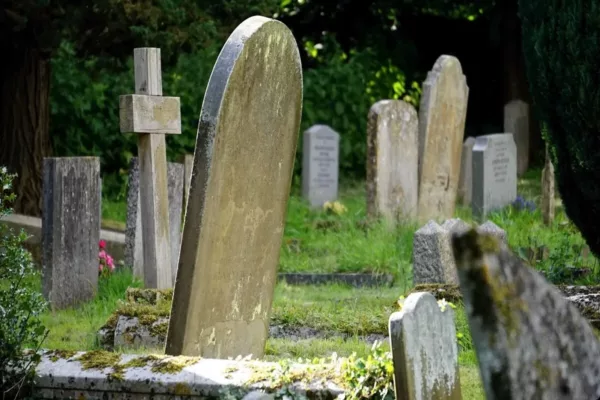Lawyer For Wrongful Death
The loss of a loved one is difficult, no matter the circumstances. When the death of a family member is the result of a preventable event, grief is often combined with confusion, frustration, and anger.
Many individuals in Utah want to rush into a wrongful death action to hold the party responsible for the death of their loved one and hold them liable for their actions. There are, however, several things to consider before filing a wrongful death lawsuit.

5 Things to Consider Before Filing a Utah Wrongful Death Lawsuit
If your loved one died because of the reckless, negligent, or deliberate acts of another party, you might be entitled to file a wrongful death lawsuit.
Filing a lawsuit for wrongful death allows you to seek justice for your family, but also to recover compensation for damages related to the loss of your loved one.
Before you file a wrongful death claim, it’s important to examine the process in further detail.

1. What is a Wrongful Death?
A wrongful death occurs when a person dies because of the misconduct or negligence of another party. The conduct may be willful or unintentional. The key factor is that the death was a result of the other party’s actions, conduct, or behavior.
Wrongful death claims may arise from a variety of situations and incidents. In many cases, they are a result of a fatal injury sustained in an accident. Examples of incidents that may result in a wrongful death suit include:
The above list is not an exhaustive list of incidents that might result in a wrongful death lawsuit. Consulting with a wrongful death lawyer in Utah is the best way to determine if you have a valid claim related to your loved one’s death.

2. Who Can File a Wrongful Death Lawsuit in Utah?
The wrongful death beneficiaries may vary slightly depending on the laws in each state. However, most states prioritize the beneficiaries by how closely related the person is to the decedent.
For instance, spouses and children typically have the first right to file a wrongful death claim. If the deceased did not have a surviving spouse, children, or grandchildren, the person’s parents and siblings would be the next in line to file a wrongful death suit.
If there are no surviving parents or siblings, other family members may have the right to file a claim. In addition, most states permit the executor of the decedent’s estate to file a wrongful death lawsuit. In some cases, only one wrongful death lawsuit may be filed.
Therefore, it is important to determine who should be named in the lawsuit to maximize the compensation available to the family members. Some states require all dependents of the decedent to be named in the lawsuit.
However, some states allow a decedent’s estate to file one action and the heirs to file another claim. If there are any questions about compensation, rights or liability it’s best to contact your Utah personal injury lawyers at Acadia Law Group.

3. Utah Wrongful Death Statute of Limitations
A statute of limitations is a deadline imposed by law for filing a lawsuit. Each state has enacted statutes of limitations for lawsuits filed in the state, including wrongful death lawsuits. The deadline for filing a wrongful death action could vary greatly.
Because each state has enacted its own deadlines for filing lawsuits for wrongful death, it is best to contact a wrongful death lawyer as soon as possible to discuss the timing of a lawsuit.

4. Choosing a lawyer for wrongful death claim in Utah
When you are searching for a professional to represent your family in a wrongful death suit, it is important to retain an experienced professional who handles wrongful death cases on a regular basis.
Wrongful death statutes are complex, and cases involving wrongful death claims can be difficult to litigate.
Your professional plays a significant role in the success of your claim.
Therefore, you want to hire a professional who has extensive experience handling matters related to wrongful death, including investigating the circumstances leading to death.
Researching applicable laws and cases, working with expert witnesses, negotiating settlements, and trying cases in court.
You should also research your attorney online, read reviews, ask for referrals from trusted parties, and check for complaints against the professional.
In addition, only hire a wrongful death professional who makes you feel comfortable, will listen to your concerns, and answer all your questions about wrongful death claims.

5. Costs of Filing a Wrongful Death Lawsuit in Utah
The loss of a family member often places a financial hardship on the family. Therefore, many families do not have the funds to hire a wrongful death professional if they must pay a retainer fee or professional’s fees.
However, most attorneys accept cases involving wrongful death on a contingency-fee basis.
A contingency fee allows you to hire a professional without paying a retainer fee. The attorney fee is only paid if you receive money for your claim. Your professional deducts the attorney fees from the proceeds of the settlement.
The fee is based on a percentage of the total proceeds received for the claim. Also, the professional deducts fees and costs before distributing the funds to you and your family.
Before hiring a wrongful death professional, you should make sure you understand the fee agreement, including the payment of any fees and costs if you do not receive compensation from the other party.

How a Professional Can Help with a Wrongful Death Claim
Wrongful death cases can be emotional, frustrating, and complicated. The rules for filing a wrongful death lawsuit can be difficult to understand. A wrongful death professional provides support, guidance, and legal advice throughout the process of pursuing a wrongful death claim.
From determining who should bring the claim to identifying the liable parties, your attorney is a valuable resource in seeking justice for your loved one and your family.
Some wrongful death claims settle without the necessity of filing a lawsuit.

However, if a lawsuit is required, your attorney prepares and files all required legal documents and then monitors the deadlines to ensure the case moves toward a conclusion efficiently and effectively.
An experienced professional can calculate the correct value of a wrongful death claim and negotiate with the other party for a fair and just settlement.
If the other party refuses to negotiate in good faith, your lawyer prepares the case for trial and aggressively argues in court for your right to receive compensation for the losses sustained because of the other party’s wrongdoing.
